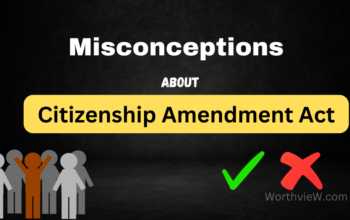Divorce is not always the same around the country as family law is state-specific in the U.S., and each divorce case is heavily influenced by the unique circumstances and context of a particular couple.
Nevertheless, critical stages of the process and certain issues when going through a divorce are the same regardless of the case’s specificity.
If we visualize a dissolution of marriage in the US, there are divorce basics — kind of a procedure framework. This is the “what,” but the “how” can vary depending on many conditions.
Thus, to draw up a plan of action for divorce in New Jersey, let’s consider the given divorce basics, including common steps for filing for divorce, and apply them to reality.
Pre-Divorce Checklist
First, regardless of the state, the spouses should realize what type of divorce is available under their circumstances. For example:
- Fault or no-fault divorce
Each state establishes its grounds for divorce – the specific facts fixed by law, which the filing spouse must indicate in the petition to apply for divorce. Now, all the US states provide a form of no-fault divorce, meaning that neither spouse has to be blamed for the breakdown of the marriage. So, the parties can skip proving marital misconduct before the court and arrange a more peaceful and straightforward proceeding.
- Contested or uncontested divorce
If the parties are ready to settle their differences out-of-court and write up a settlement agreement, they typically face a more affordable and quick divorce process. If they cannot reach an agreement, they may need to go forward with litigation and leave the final decisions regarding their case up to the judge.
- Do-it-yourself or lawyer-assisted divorce
In fact, between these extremes, many options are available, depending on the received legal aid. For example, a person may arrange a DIY-divorce, representing themselves before the court, without an attorney but use an online divorce paperwork drafting company newjerseyonlinedivorce.com to prepare the documents. Besides divorce over the internet, they may seek limited legal assistance or choose collaborative processes, such as mediation or other out-of-court conflict resolution alternatives.
Steps in a New Jersey Divorce
Meet the Residency Requirements
Foremost, to be eligible to file for divorce in New Jersey, either spouse must be a resident of the state for at least a year before the commencement of an action.
The only exception is for cases based on adultery (one of the fault grounds for divorce). In this case, no waiting period is required before filing if at least one of the spouses currently resides in New Jersey.
Choose the Ground for Divorce
In New Jersey, both fault and no-fault grounds for divorce are recognized. Typically, fault-based grounds imply that one of the spouses is to blame for the breakup because of some marital misconduct. It’s not enough just to testify the wrongdoing. The petitioner is required to prove the indicated fault-based ground before the court.
According to New Jersey Revised Statutes, fault grounds for divorce include adultery, cruelty, and domestic violence, willful abandonment for at least one year, drug or alcohol addiction, institutionalization for mental illness for at least two years, imprisonment for at least 18 months, and deviant sexual behavior (without the partner’s consent).
The only no-fault ground for divorce in New Jersey is living separate and apart without cohabitation for at least 18 months. This ground for divorce doesn’t have to be proved because it’s assumed that no one is to blame.
Complete and File the Documents
The spouse who initiates the case shall fill out the divorce petition called the Complaint for Divorce in New Jersey along with the rest of the legal forms. Each state’s courts provide specific divorce document templates. One can get the necessary forms in the court clerk’s office, on the New Jersey courts site, or complete divorce papers online via inexpensive web divorce services. All these options are legit and relevant if the petitioner submits the completed documents to the Family Division of the Superior Court following the local rules and deadlines.
At the moment of filing, the plaintiff shall also pay mandatory court filing fees and make at least three copies of all divorce paperwork, leaving one set with the court.
Serve Divorce Papers
The next step is serving the copies of the Complaint and the Summons to the other spouse. The petitioner has to deliver the documents within thirty days of the date of filing in one of these ways:
- with the Sheriff’s Office assistance;
- directly or via certified mail;
- with the help of a private process server.
In New Jersey, after the respondent is served with the forms, the respondent has 35 days to file a Response and avoid default judgment against them.
Main Issues to Resolve
New Jersey family law does not require any cooling-off waiting period for getting a divorce. Therefore, after all the papers are filed and served, how fast the spouses can finalize the divorce usually depends largely on them. If they do not want to contest the case, they can separate peacefully, save time, and reduce the cost of divorce by creating an agreement on the essential terms of their separation.
Child Custody and Parenting Time
In New Jersey, child custody orders must be decided following the best interests of a child.
In general, two types of custody can be distinguished – physical and legal, combinations of which can be ordered given the child’s interest in a particular case.
In short, physical custody determines with whom the child lives and spends most of the time. In contrast, legal custody refers to each parent’s decision-making power concerning essential aspects of a child’s life.
New Jersey laws presume that spending time and maintaining a close relationship with both parents is good for the child unless there is evidence to the contrary (any cases of domestic violence, abuse, etc.), so joint custody is encouraged.
Joint custody means that both parents have to cooperate when making critical decisions (about a child’s education, religious upbringing, medical care, travels, etc.) and that both parents spend more or less equal time with a child (a child may alternate between parents’ homes but it is not compulsory).
Sole custody implies that one of the parents is the primary custodian, while the other parent has visitation rights following the agreed (or established by the judge) parenting schedule.
Every divorce case is unique, and in deciding child custody, New Jersey courts consider many factors in determining the child’s best interest in a particular situation.
Spousal Support
Alimony is a payment made from one former spouse to the other one who has a lower income or, for some reason, cannot become financially self-sufficient right after a divorce.
In New Jersey, one of the five types of alimony may be awarded depending on the circumstances:
- ?limony pendente lite, which is awarded to cover some unplanned expenses during the divorce is pending.
- Open duration alimony. This type of maintenance has flexible time limits. The payor may be required to pay it as long as the recipient remains not self-sufficient for a valid reason.
- Rehabilitative alimony. This type of maintenance is designed to help the recipient get education or training to achieve appropriate employment.
- Reimbursement alimony. This is a certain amount meant to pay back the spouse who supported the other spouse’s education.
- Permanent alimony. The court can award this type of spousal support only for long-term marriages and after the court considers many factors of the particular case.
For marriages that lasted less than twenty years, spousal support cannot be awarded for a more extended period than the duration of the marriage itself unless there are exceptional circumstances.
Property Division
Like a majority of US states, New Jersey follows the principle of equitable distribution of assets.
This model implies that the marital property doesn’t necessarily have to be divided 50/50 if the court concludes that unequal division could represent each party’s interests more fairly after weighing the numerous factors.
To determine a fair split of property, the court usually considers the following factors:
- The length of the marriage;
- Each spouse’s age and health;
- Each spouse’s income, earning capacity, separate property, economic circumstances;
- Any debts or liabilities;
- The standard of living maintained before a divorce;
- Each spouse’s contribution to the couple’s marital property (including a non-monetary contribution as a homemaker);
- Any written agreements between the parties (like a prenuptial agreement); and other factors the court may deem relevant.
P. S.
When the spouses are on the same page regarding essential financial, property, and child-related issues, they can sign their Settlement Agreement and submit it to the judge. After that, a final court hearing can be scheduled.
In an uncontested divorce hearing, the judge shall review the Settlement Agreement and all the paperwork concerning the case to ensure that arrangements are fair. This final step of divorce is typically brief and peaceful, and in some New Jersey counties, the respondent does not even have to attend it.
Related Posts












